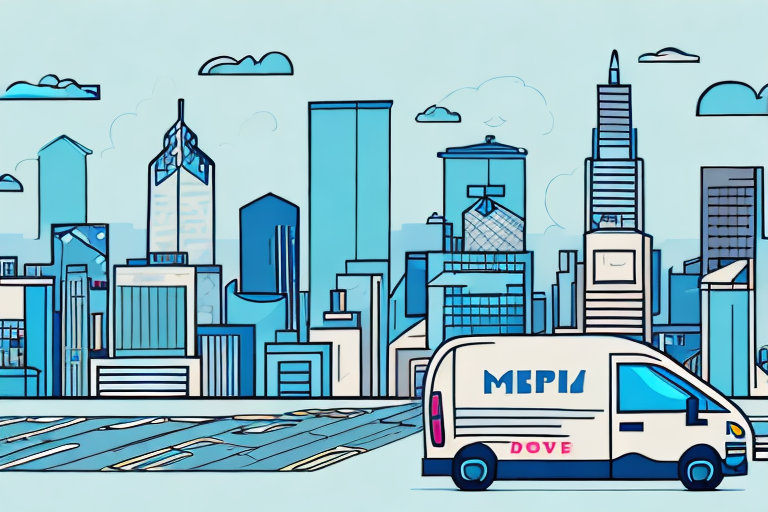What Is Delivery Management? A Comprehensive Guide
Delivery management is an essential aspect of conducting business across various industries that involve delivering products and services to customers. From e-commerce stores to logistics companies and everything in between, effective delivery management plays a key role in the success and profitability of a business. This comprehensive guide delves into the intricacies of delivery management, exploring its importance, functionality, benefits, challenges, and best practices to help businesses optimize their delivery processes.
Understanding Delivery Management
Definition and Process
Delivery management is the process of planning, executing, and controlling the entire delivery chain of goods and services to customers. This involves everything from receiving a customer's order to delivering the product or service to their doorstep. Key sub-processes include order processing, dispatching, route planning, tracking, and proof of delivery.
Ensuring Timely and Accurate Delivery
One of the primary challenges in delivery management is ensuring that deliveries are both timely and accurate. This requires effective communication and coordination among various departments and stakeholders, such as the warehouse, logistics team, and delivery personnel. Leveraging technology and data analytics is crucial for optimizing delivery routes, tracking shipments in real-time, and providing customers with precise delivery estimates.
Enhancing Customer Satisfaction
Customer satisfaction is paramount in delivery management. Beyond delivering products on time, providing a seamless and hassle-free delivery experience is essential. Offering multiple delivery options, regular updates on delivery status, and prompt resolution of any issues contribute to building a loyal customer base and gaining a competitive advantage in the market.
The Importance and Benefits of Delivery Management
Impact on Customer Experience
Delivery management directly influences customer experience and satisfaction. In today's on-demand economy, customers expect their orders to arrive promptly and in excellent condition. Failure to meet these expectations can lead to negative reviews, customer churn, and revenue loss.
Cost Reduction and Revenue Growth
Effective delivery management helps businesses reduce delivery times, optimize resources, and lower costs. This efficiency not only enhances customer loyalty but also contributes to revenue growth.
Sustainability Efforts
By optimizing delivery routes and minimizing unnecessary trips, businesses can reduce their carbon footprint and contribute to environmental sustainability. This not only benefits the planet but also enhances the brand image, appealing to environmentally conscious consumers.
Delivery Management Systems
Key Components
- Order Management: Receiving and processing customer orders efficiently.
- Dispatching: Assigning orders to appropriate delivery personnel.
- Route Optimization: Planning the most efficient delivery routes using algorithms and real-time data.
- Tracking: Monitoring deliveries in real-time to provide updates and ensure timely arrivals.
- Proof of Delivery: Confirming deliveries through electronic signatures and photos.
Types of Delivery Management Systems
- Manual Systems: Managing deliveries using spreadsheets and phone calls, suitable for small businesses with low delivery volumes.
- On-premise Software: Locally installed software offering features like real-time tracking and automated notifications.
- Cloud-based Solutions: Web-based systems providing flexibility, scalability, and remote access capabilities.
- Third-party Logistics Providers: Outsourcing delivery management to specialized providers, allowing businesses to focus on core operations.
Benefits of Implementing a Delivery Management System
- Reduced Delivery Times and Costs: Streamlined operations lead to faster and more cost-effective deliveries.
- Improved Customer Satisfaction: Enhanced delivery experiences foster customer loyalty.
- Increased Efficiency and Productivity: Automation and optimization improve overall operational efficiency.
- Enhanced Accuracy: Minimizing errors in deliveries enhances reliability and trustworthiness.
According to a Supply Chain Digital report, businesses utilizing advanced delivery management systems experience a 20% increase in delivery efficiency and a significant reduction in operational costs.
Challenges in Delivery Management
Transportation Costs
The rising cost of transportation, driven by fluctuating fuel prices, poses a significant challenge. Businesses must continuously seek ways to optimize delivery routes and reduce fuel consumption to manage costs effectively.
Demand for Faster Deliveries
With the growing expectation for rapid deliveries, businesses face pressure to invest in faster delivery methods such as same-day delivery services and innovative solutions like drones.
Managing Deliveries Under Unpredictable Conditions
Unpredictable factors such as weather disruptions and traffic congestion can impede delivery schedules. Developing contingency plans and utilizing real-time data are essential strategies to mitigate these challenges.
Best Practices for Effective Delivery Management
Automate Processes
Automation of routine tasks, such as order processing and route planning, enhances efficiency and reduces the likelihood of human error.
Utilize Real-time Tracking
Implementing real-time tracking systems allows businesses and customers to monitor deliveries, providing transparency and improving trust.
Invest in Personnel Training
Training delivery personnel ensures they are equipped with the necessary skills and knowledge to handle deliveries efficiently and address any issues that may arise.
Streamline Communication
Effective communication channels between different stakeholders, including warehouse staff, logistics teams, and delivery personnel, are crucial for smooth operations.
Establish Clear Timelines
Setting realistic and clear delivery timelines helps manage customer expectations and reduces the likelihood of delays or missed deliveries.
Implement Sustainable Practices
Adopting sustainable delivery practices, such as using electric vehicles and optimizing delivery routes to minimize carbon emissions, not only benefits the environment but also enhances the company's reputation.
The Role of Technology and Future Trends in Delivery Management
Technological Advancements
Technology plays a pivotal role in modern delivery management. Innovations such as route optimization algorithms, real-time tracking systems, and electronic proof of delivery have revolutionized the industry, making delivery processes more efficient and reliable.
Emerging Trends
- On-demand Delivery Services: The rise of on-demand services caters to the increasing consumer demand for quick and flexible delivery options.
- Artificial Intelligence and Machine Learning: AI and ML are being integrated to predict delivery times, optimize routes, and enhance decision-making processes.
- Expansion of Software for Small Businesses: Delivery management software tailored for small businesses is gaining traction, providing scalable solutions for growing enterprises.
- Sustainability and Eco-friendliness: There is a growing emphasis on incorporating sustainable practices within the delivery chain to meet environmental standards and consumer expectations.
Case Studies
- Amazon: Leveraging advanced delivery management systems to ensure swift and accurate deliveries worldwide.
- Uber Eats: Utilizing real-time tracking and optimization algorithms to enhance food delivery efficiency.
- Domino's Pizza: Implementing innovative delivery solutions, including GPS tracking and automated ordering systems.
- Walmart: Integrating sophisticated delivery management software to streamline operations and improve customer satisfaction.
These case studies highlight how leading companies have successfully implemented delivery management systems to boost efficiency and enhance customer experiences.
Future Prospects
The delivery management industry is poised for significant growth, driven by continuous technological advancements and evolving customer expectations. Trends such as the increasing demand for on-demand delivery services, the adoption of artificial intelligence, and the integration of sustainable practices are expected to shape the future of the industry. Businesses that prioritize delivery management and invest in the latest technologies and best practices are likely to thrive in this dynamic and rapidly evolving landscape.
Conclusion
Effective delivery management is a critical component of business success in today's competitive market. By understanding its importance, implementing robust systems, overcoming challenges, and adopting best practices, businesses can enhance their delivery processes, reduce costs, and improve customer satisfaction. As the industry continues to evolve, staying abreast of technological advancements and emerging trends will be key to maintaining a competitive edge and ensuring long-term profitability.






















